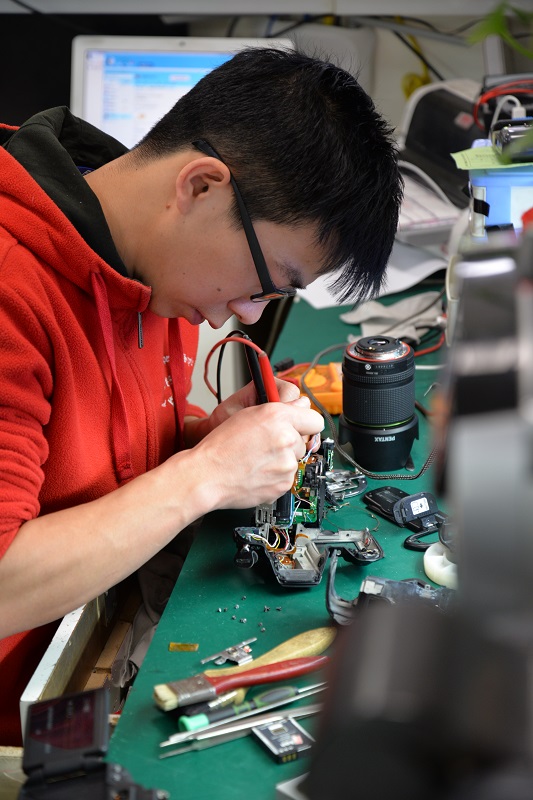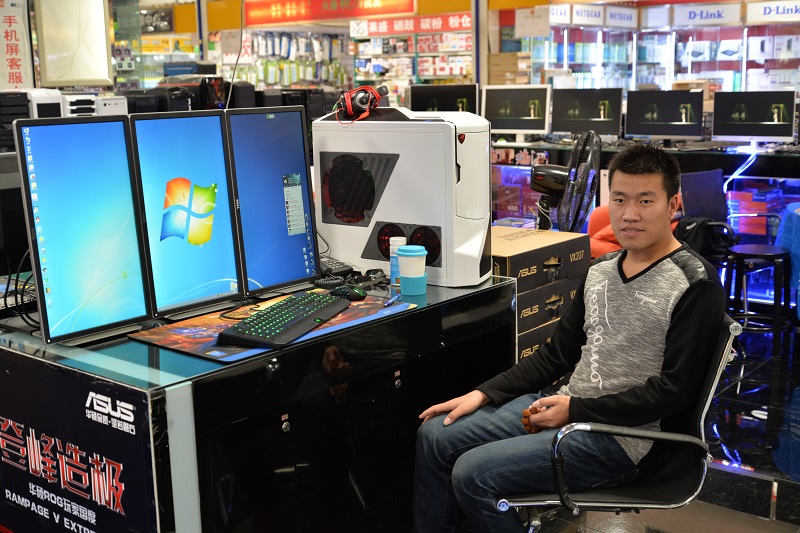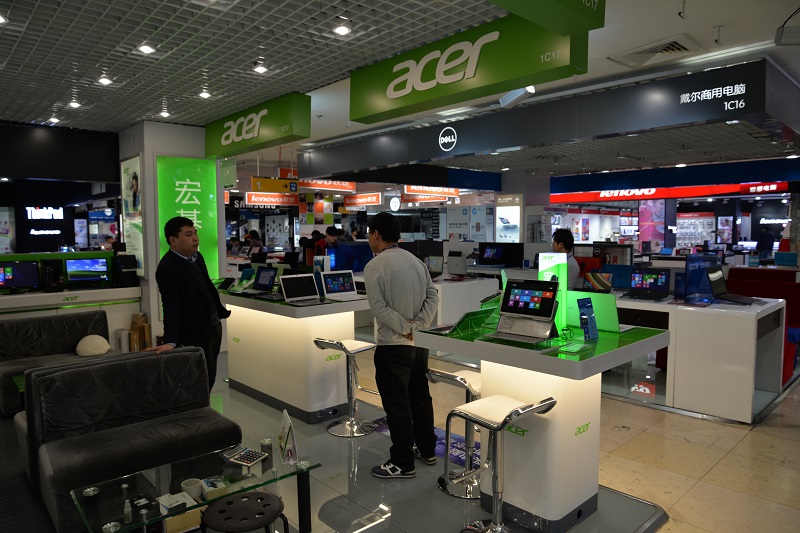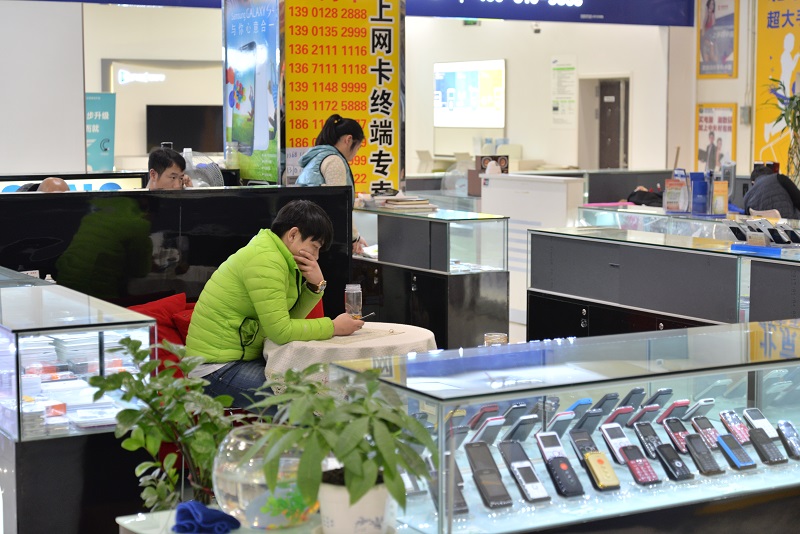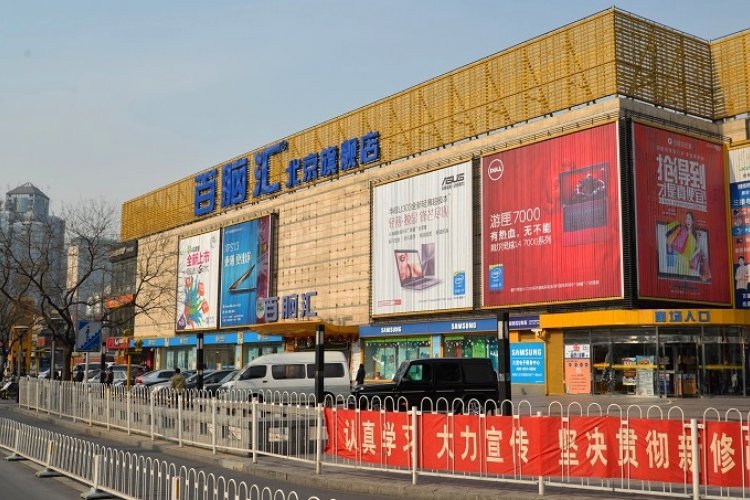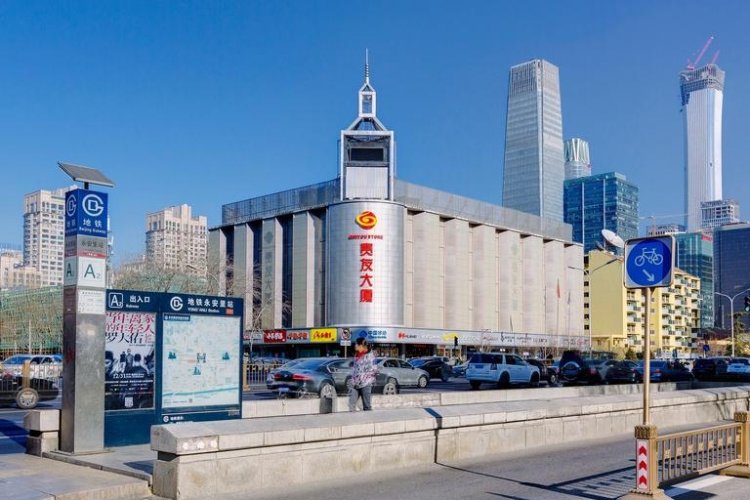Well, they kind of deserve it. I bought few phones there (I lost a lot in 2013), it was more expensive than taobao (and sometime JD too), and I got 2 broken phones (one, the screen stops working when it's too cold, the other one, I had to change it right away because it took 12 hours to charge the battery...).
It's too expensive (I know you have to bargain, but still), and they sell you crap, of course people buy on JD or taobao now.


